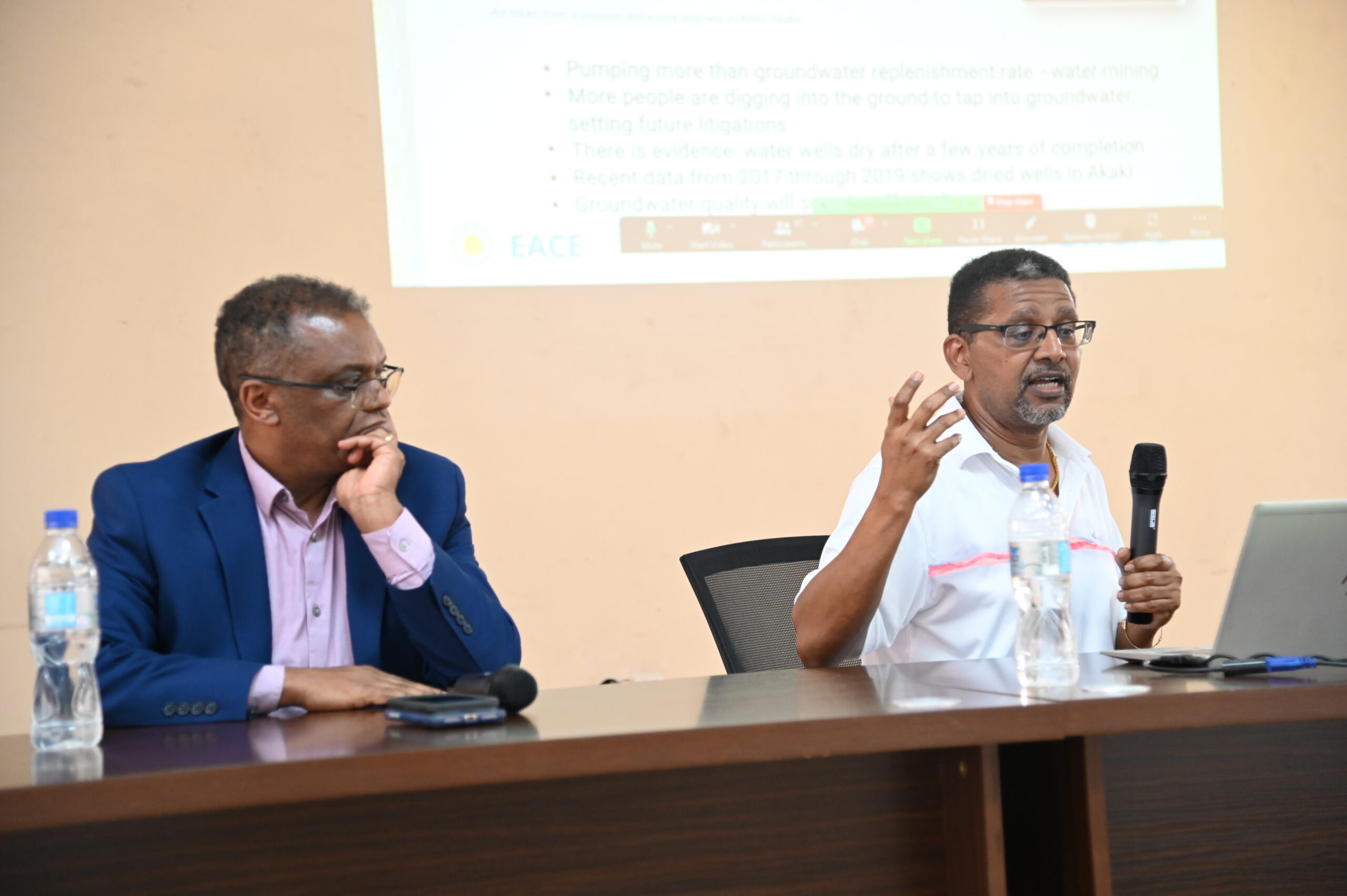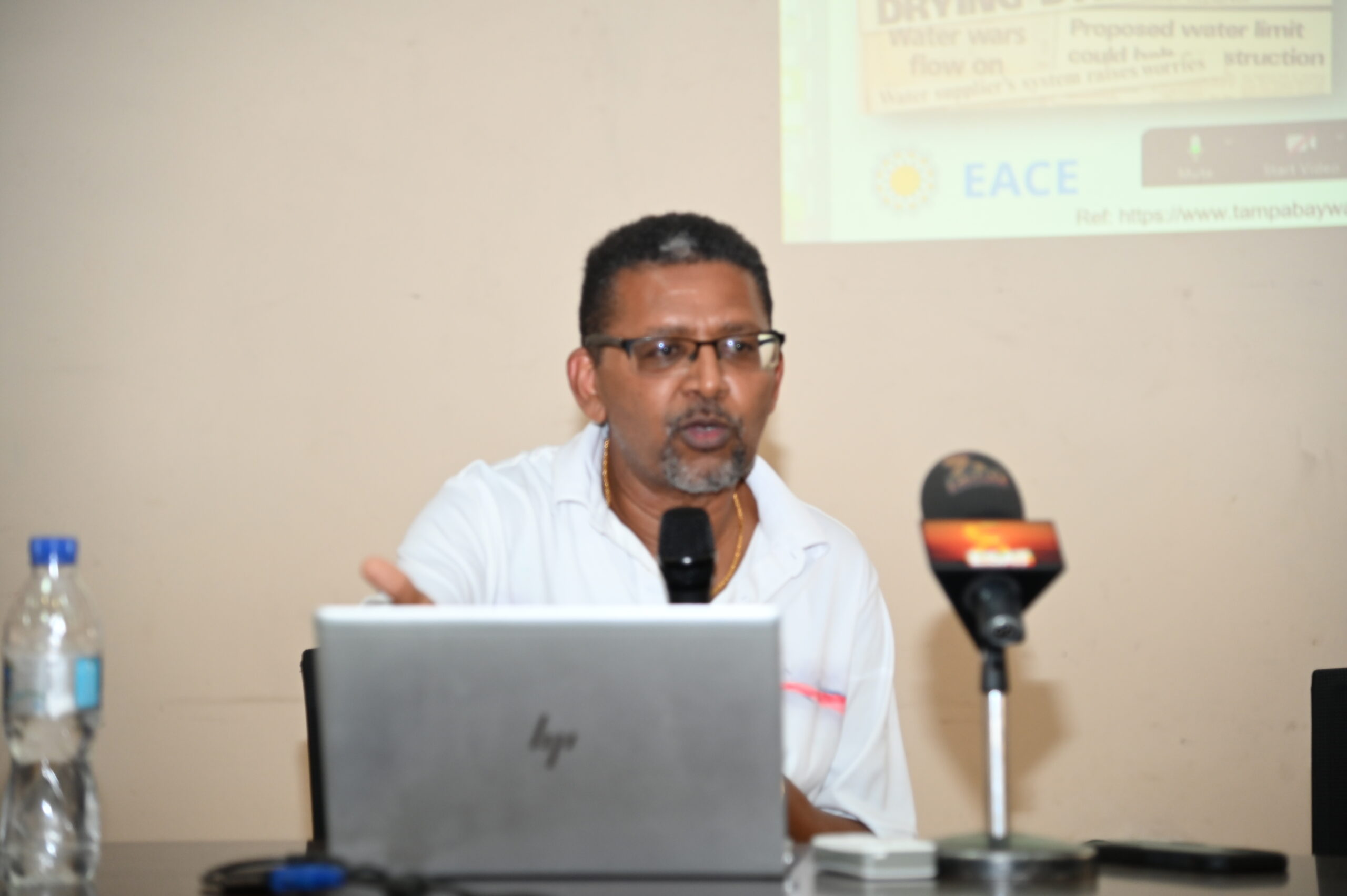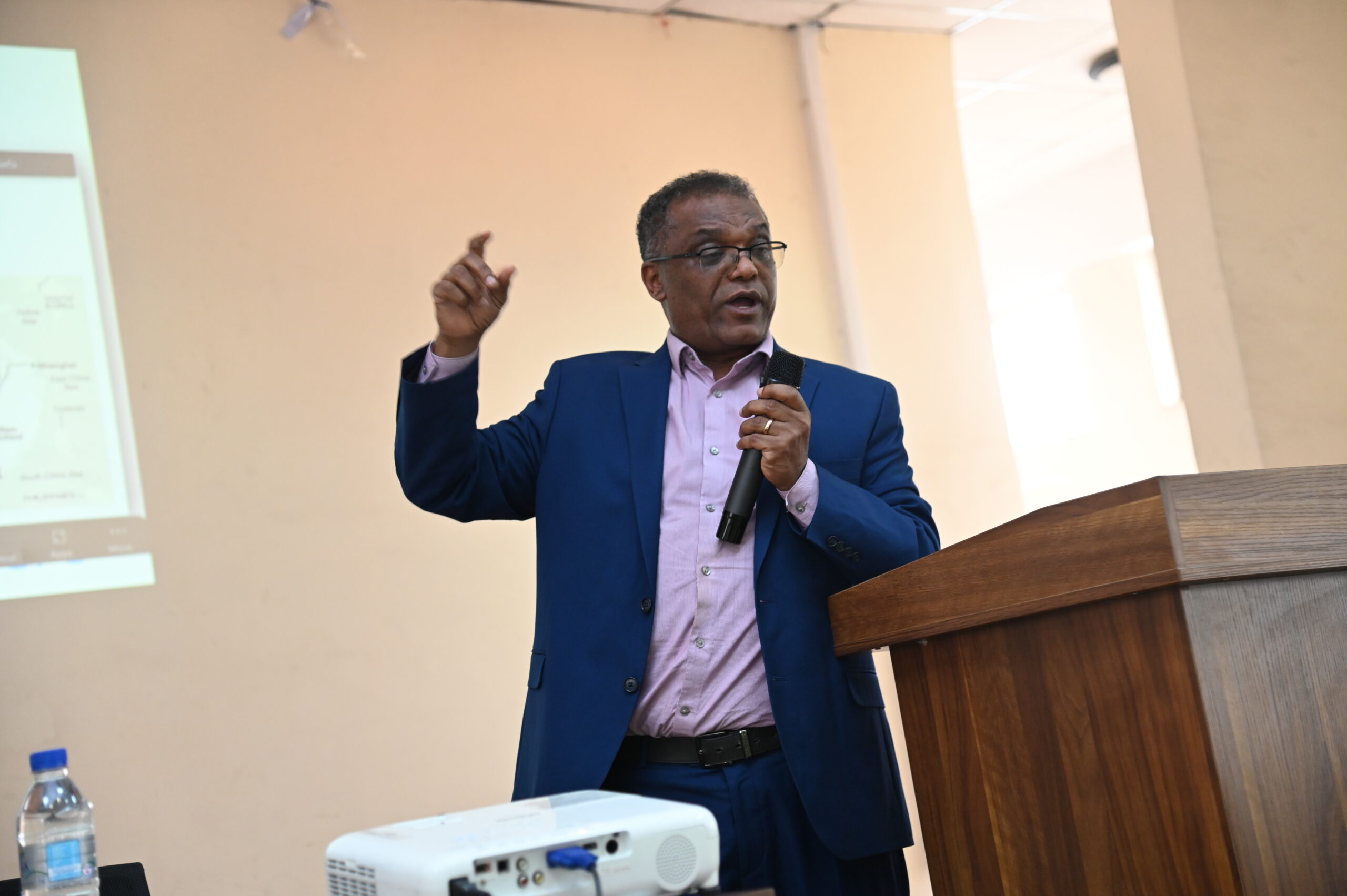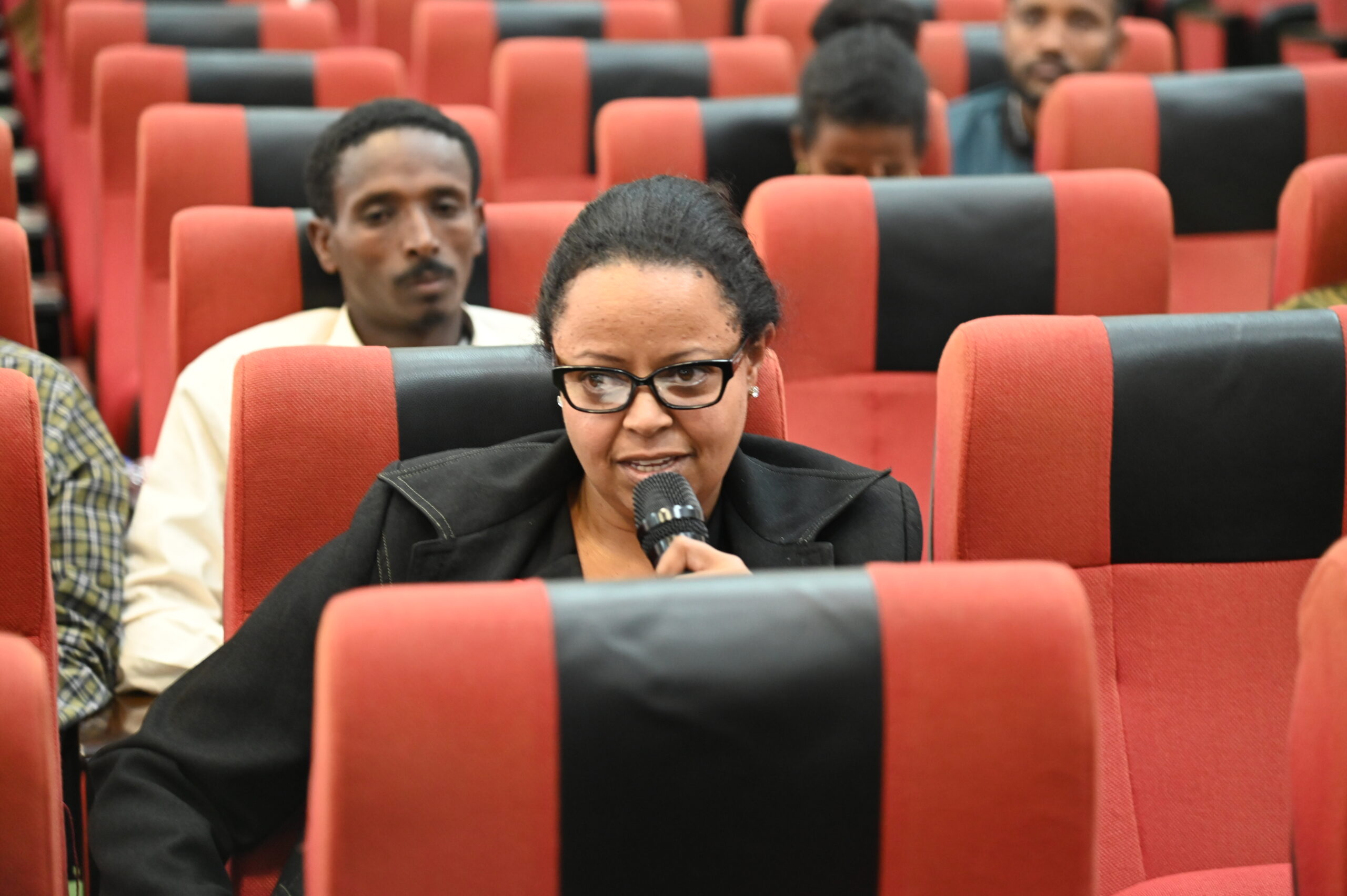Public Seminar entitled “A Roadmap to Address Addis Ababa’s Chronic Urban Water Supply” was held at ACEWM. The study was presented by Dr. Fekadu Moreda, Senior Water Resources Engineer at Research Triangle Institute International and Dr. Tirusew Asefa, the lead for decision support group at Tampa Bay Water.

Their study addressed Addis Ababa’s chronic water problem and proposes potential solutions. The authors explored the issue’s magnitude and the various ad-hoc “solutions” implemented by residents. In summary, they stress the significant gap between water supply and demand, with only ~40% of current demand being met. Resolving this issue demands a comprehensive approach involving government authorities at all levels, the authors mentioned.

The paper presents urgently needed measures as a strategic roadmap to comprehensively address the chronic water shortage in Addis Ababa. The proposed strategy advocates for diversified investment in various water sources, including surface water and groundwater conjunctive utilization, along with inter-basin transfers. Emphasis is placed on the necessities for significant investments in water resource structures to meet both current and future water demand. Their finding also recommends integrated and collaborative efforts among the administrations of Addis Ababa City, Oromia State and Federal governments. The two authors has said This collaboration can be achieved through the establishment of a new Water Commission, tasked with planning projects, securing funds, executing major infrastructures, and providing water governance across political and regional boundaries.

The finding also advocates for proper tariffs to achieve full cost-recovery, crucial for financing operational costs and new infrastructures. It highlights the importance of curtailing water losses to enhance overall efficiency as a key component of the broader solutions. Additionally, the integration of innovative underground storage and recovery technologies is recommended for Addis Ababa, coupled with the establishment of a comprehensive institutional framework. These practices, proven effective in numerous global cities, serve as exemplary benchmarks for sustainable water management.
On the seminar Participants raised different questions and discussions were made.


